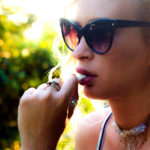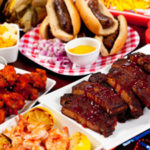Turning Off Cravings for Alcohol?
I read an article about a vitamin/pill that reduces cravings for alcohol. What can you tell me about it?
Andrew Weil, M.D. | March 3, 2005

If there were a vitamin or other pill that reliably decreased cravings for alcohol in everyone who needed help, the scientist who discovered the effect probably would win a Nobel Prize. Over the years, a number of substances have been credited with reducing alcoholic cravings. A few may help some people, but none of them works for everyone:
- B vitamins: Research has suggested that alcoholic cravings are due to a deficiency in B vitamins and that supplements may lessen the desire to drink. But these findings, most of which are more than 20 years old, haven’t been substantiated over time. Still, because alcohol abuse does deplete B vitamins in general and thiamin in particular, I recommend taking a B-complex vitamin supplement plus extra thiamin (100 mgs).
- L-glutamine: Research in both animals and humans suggests that this amino acid can reduce both cravings and the anxiety that accompanies alcohol withdrawal. The study in humans was done in 1957. Participants took either a placebo or one gram of L-glutamine in divided doses, with meals. Results were published in the Quarterly Journal of Studies on Alcohol.
- Kudzu: Extracts from the root of this weed (pueraria lobata), which is pervasive and invasive in the southern United States, have been recommended as a treatment for alcoholic cravings. Kudzu is widely used for this purpose by traditional practitioners in China, and some animal studies have shown that it decreases the desire for alcohol. Results of a pilot study in humans published in the February 2000 issue of the Journal of Alternative and Complementary Medicine showed that doses smaller than those used in the studies in China failed to help alcoholics abstain from drinking.
- Naltrexone: This drug (brand names: ReVia, Depade) reduces the desire for alcohol after you stop drinking. Naltrexone works by blocking the parts of the brain that sense pleasure in response to alcohol. Unlike Antabuse (disulfiram), sometimes used to treat alcoholism, naltrexone doesn’t make you sick if you drink alcohol while you’re taking it. The drug usually is prescribed temporarily (for 12 weeks or more) to help recovering alcoholics deal with cravings after they’ve stopped drinking.
Andrew Weil, M.D.










